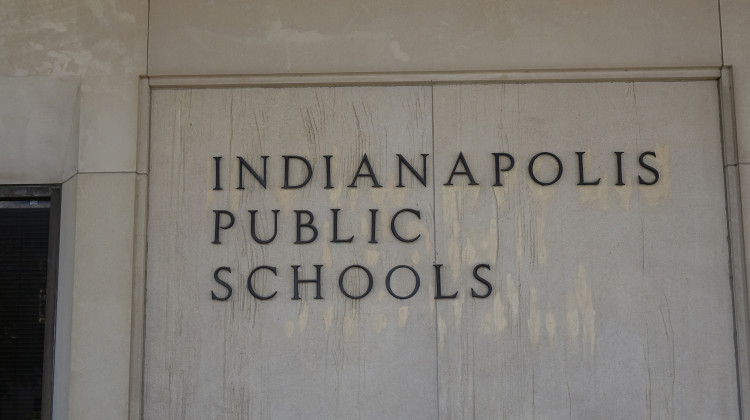
The literacy rate for students finishing third grade lags behind pre-pandemic reading fluency.
Andrew Ebrahim/UnsplashIndiana’s literacy rate for students finishing third grade is near the lowest point of the past decade.
Results out Wednesday show nearly 1 in 5 Indiana third graders lacked strong vocabularies and phonics – the fundamental skills required to become a young reader and academically successful.
Statewide, 81.6 percent of the 65,000 third graders at public and private schools passed the 2022 Indiana Reading Evaluation and Determination – or IREAD-3 – test in the spring or summer. The rate is nearly unchanged from a year ago, yet is 5.7 percentage points behind the pre-COVID-19 pandemic results from the 2018-2019 school year.
This year’s reading rate is nearly 10 percentage points behind the state's highest pass rate of 91.4 percent in 2012-13.
Indiana Secretary of Education Katie Jenner called on educators to immediately address the issue.
"So we have an urgency as a department, as the State Board of Education, as K-12 educators to laser focus in and make sure that this improves urgently," Jenner said during Wednesday's State Board of Education meeting at Indiana Government Center South in Indianapolis.
In April, the Indiana State Conference of the NAACP released a plan address the academic achievement gaps between Black students and their White classmates. They've called on Gov. Eric Holcomb and the IDOE to adopt it.
Research has shown a direct link between reading by the end of third grade and the ability of students to learn and retain knowledge. Passing IREAD-3 is a fundamental step to ensuring students are able to learn from reading starting in fourth grade.
While IREAD-3 literacy rate for nearly all student subgroups improved since last year, some students already reading below grade level remain even further behind peers as they try to catch up from disruptions caused by the pandemic.
Black students and English language learners passed IREAD at around 64 percent in 2022 – about a 23 percentage point below the scores of white students. Other student groups face similar disparities: Hispanic students, students with disabilities and students in poverty.
Jenner described the learning gaps of these students as “significant.”
“We absolutely need to double down and make sure they have all the support needed to read,” she told the board.
The pass rate for students learning English in Indiana schools is at 63.7 percent – a nearly nine percentage point drop compared to last year.
Board member Scott Bess said the state needs to understand how growing populations, such as Hispanic and English learner students, can be supported better to address the long-standing proficiency gaps.
“That should be an alarm blaring all over this center and the Statehouse and everywhere else,” said Bess, who is executive director of Purdue Polytechnic High Schools. “That problem is not going away. It is going to get bigger and have a big impact on this state in five years from now, 10 years from now, 20 years from now if we don’t act.
Students who don’t pass the multiple-choice IREAD-3 test are required to receive remediation in foundational reading skills, reading comprehension and other areas before retaking the exam in the summer. A student who does not pass can be retained in third grade.
The IREAD-3 results follow a similar pattern of the 2022 ILEARN pass rates, which also showed a slight improvement for students but remain several percentage points below the rate before the pandemic. The ILEARN test assess if students are grade-level proficient in English, Math and other subjects.
Contact WFYI education editor Eric Weddle at eweddle@wfyi.org or call (317) 614-0470. Follow on Twitter: @ericweddle.
 DONATE
DONATE







 Support WFYI. We can't do it without you.
Support WFYI. We can't do it without you.